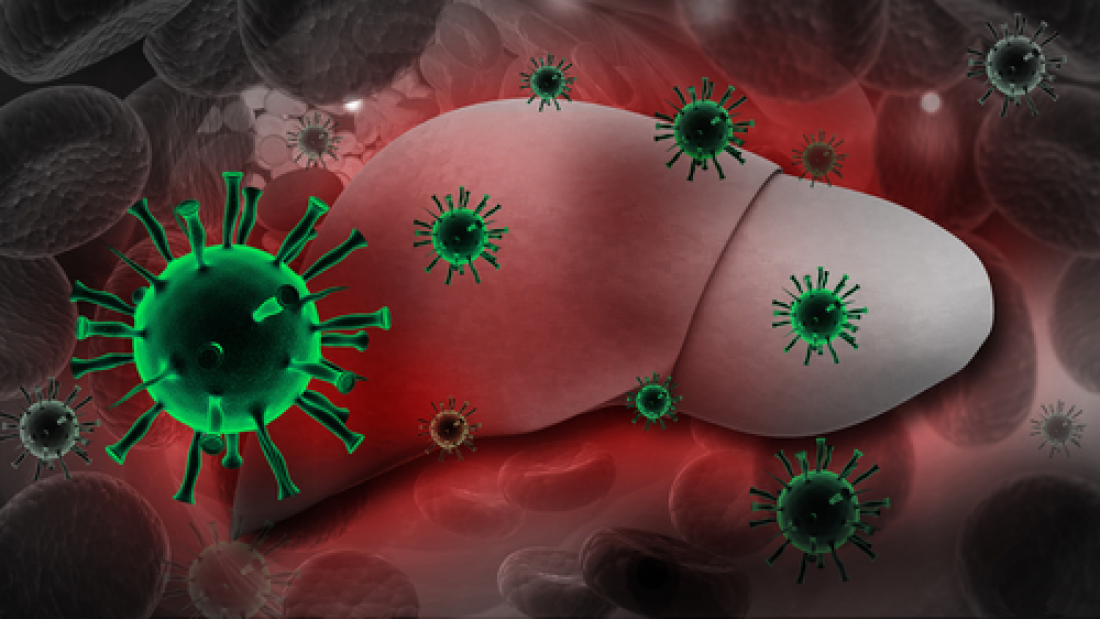In the continual competition for successful hepatitis C treatments, Bristol-Myers Squibb is trying its hand at its own combination of drugs — daclatasvir, asunaprevir, and beclabuvir. A 12-week dose of the investigational three-drug hepatitis C combination cleared the virus in 93 percent with liver cirrhosis who hadn’t previously been treated, finds a study published today in The Journal of the American Medical Association (JAMA).
Although none of the three drugs are FDA-approved, daclatasvir is currently under FDA review. Bristol-Myers developed daclatasvir, an inhibitor of the protein NS5A, to be used in tandem with its own asunaprevir to halt viral replication. But with the advancements of rivals Gilead and AbbVie treatments, Bristol-Myers abandoned that plan, instead announcing in March that its daclatasvir had been accepted for review by the FDA for use in combination with sofosbuvir for the treatment of chronic hepatitis C genotype 3. Genotype 3 is estimated to affect nearly 55 million people worldwide, and is the second most common hepatitis C genotype after genotype 1, which affects about 84 million.
In the JAMA study, led by Duke Medicine researchers, Bristol-Myers’ focus is on treating genotype 1 hepatitis. The trial—conducted between December 2013 and September 2014 at nearly 50 sites across the U.S., Canada, France and Australia—looked at patients with hepatitis C-related cirrhosis, 112 of whom had not previously been treated for hepatitis C, and 90 who had previous unsuccessful therapies.
For patients who had failed prior therapies, the drugs were slightly less successful, eradicating the virus in 87 percent. But when a fourth drug, ribavirin, was added to the investigational regimen, success rates in previously treated patients reached 93 percent—equivalent to those receiving treatment for the first time.
“In the past, we’ve seen lower response rates in patients with cirrhosis,” Andrew Muir, M.D., M.H.S., chief of the division of gastroenterology at Duke and the study’s lead author, told Drug Discovery & Development. “These are the patients who need treatment soon to stop the progression of their liver disease to the point of liver failure needing a transplant—so it was important to see the response rates over 90 percent.”
Pharmaceutical companies, Gilead and AbbVie, have been jockeying for control of the hepatitis C market in recent years. Gilead’s blockbuster hepatitis C drugs, Sovaldi and Harvoni, brought inabout $4.45 billion within the first three months of this year. And AbbVie’s rival drug, Viekira Pak, received exclusive coverage from Express Scripts, the largest pharmacy benefits manager in the U.S.
“The development of interferon-free treatments has been a tremendous step forward in the standard of care,” said Dr. Muir. “These drugs are highly effective and well-tolerated by patients at all stages of liver disease.”
According to the JAMA study, the drugs had minimal side effects, with nine patients experiencing serious complications, three of which were considered related to the treatment.
The study’s limitations included not having a placebo group and a lack of racial diversity, with 88 percent white participants.
Date: May 5, 2015
Source http://www.dddmag.com/articles/2015/05/hepatitis-c-therapy-clears-virus-93-patients-bms-funded-trial?et_cid=4553431&et_rid=745476040&type=headline


Add a Comment